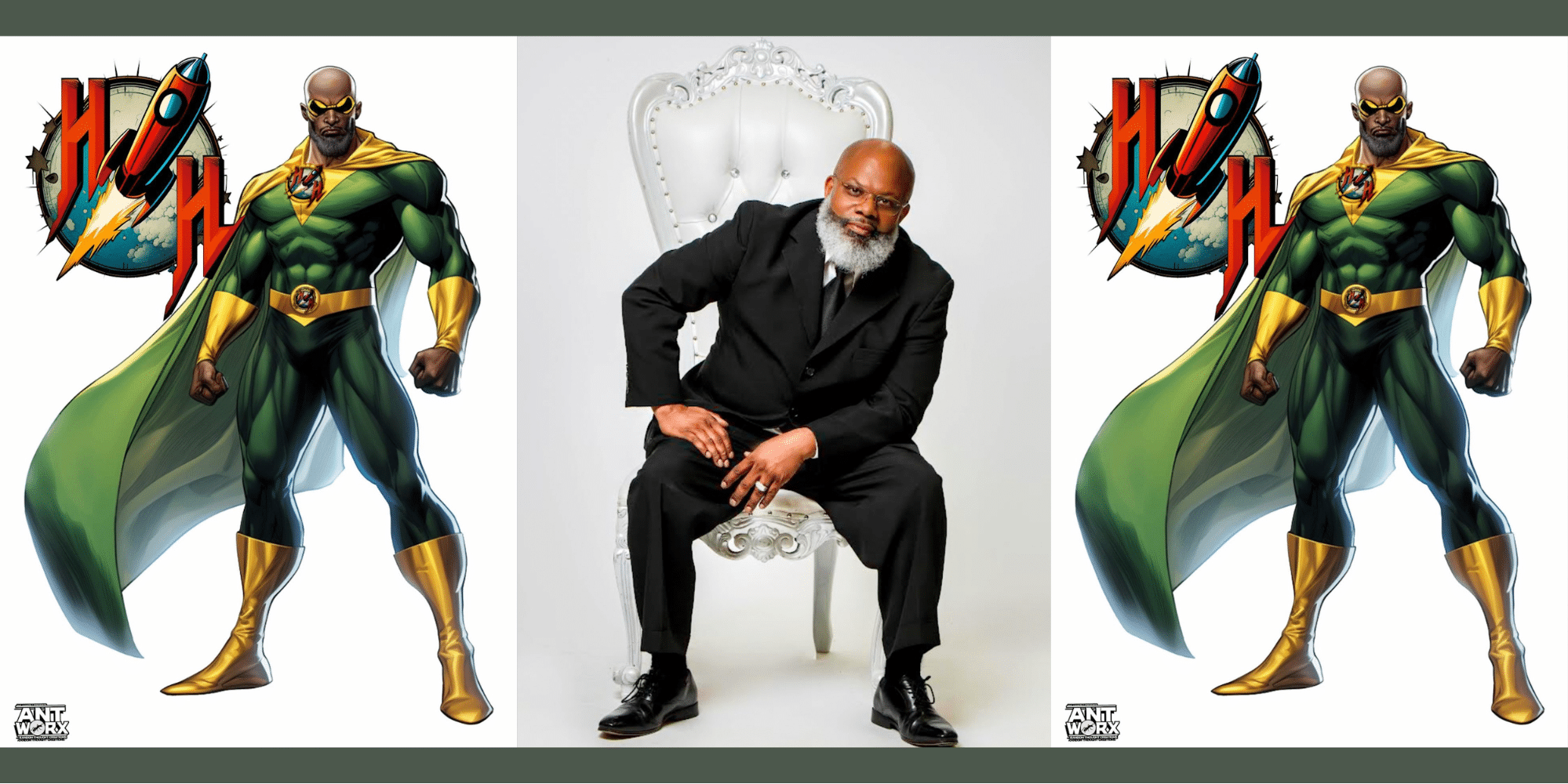In the heart of every city and state, from the bustling avenues of New York to the serene lanes of Kyoto, lies an unsung battleground. It’s not the kind one reads about in history books or watches on the news. This battle doesn’t involve armies or weapons of destruction; instead, it’s fought by everyday heroes armed with nothing but their resolve and a steadfast commitment to beauty and cleanliness. The adversary? Urban decay manifested most visibly through litter and filth that tarnish our streets like a blight. Within this context emerges a narrative so compelling that it might just capture the imagination of giants like DC Comics or Marvel Comics. It’s the story of Erick Wade, dubbed ‘The Huntsville Hero,’ who has embarked on an extraordinary mission to inspire global action against urban neglect.
“Heroes unite, keeping our streets clean and bright! Or Heroic Deeds! No Litter Needs!” This isn’t merely a catchy slogan; it embodies a powerful call to arms for citizens worldwide to stand against environmental degradation in their communities. Through his creative endeavors, Erick Wade envisions a world where superheroes don’t just fight crime in the traditional sense but also combat filthiness, coronavirus, grime, and all forms of pollution threatening our urban landscapes.
The significance of maintaining cleanliness in every corner of our globe cannot be overstated. Cities are more than just spaces inhabited by buildings and people; they are living organisms that reflect human civilization’s achievements, struggles, and aspirations. A clean city is synonymous with health, productivity, and pride; it invites its residents and visitors alike to partake in its offerings with respect and admiration. Conversely, neglected urban environments breed disease, deter tourism and investment, and erode community spirit.
Erick Wade’s initiative is not merely about removing trash from the streets; it’s an ambitious crusade aimed at transforming societal attitudes toward public spaces. Imagine walking down a street lined with trees whose branches dance gently in the breeze instead of being ensnared by plastic bags. Envision parks where children play freely on grass unmarred by discarded cans and cigarette butts — these are scenes from a narrative we can all help write.
But why should such an initiative attract attention from comic book giants? The answer lies in the power of storytelling. Comics have always been more than entertainment; they’re potent vehicles for social commentary and change. Characters like Spider-Man teach us about responsibility; Wonder Woman champions justice; Batman exemplifies resilience against personal trauma — all through engaging narratives that captivate audiences worldwide.
Erick Wade’s story — The Huntsville Hero Fighting against urban decay — offers a fresh perspective on heroism grounded in real-world issues. It presents an opportunity for comic book creators to explore new territories where heroes tackle contemporary challenges such as environmental conservation while inspiring readers to take actionable steps towards making their communities cleaner and more beautiful.
Integrating exclusive brand insights into this narrative enriches its authenticity. For instance, sharing quotes directly from Erick Wade or featuring images from community clean-up events on platforms like LinkedIn could significantly enhance engagement with his mission while showcasing tangible impacts made by local heroes worldwide.
This article serves not only as an ode to Erick Wade’s laudable efforts but also as an invitation for everyone to become partakers in this global movement towards environmental stewardship. By adopting habits that promote cleanliness within our immediate surroundings — whether through organized clean-up drives or simple acts like properly disposing of waste — each person contributes to a larger tapestry of change.
In essence, The Huntsville Hero’s story transcends mere environmental advocacy; it encapsulates a broader message about collective responsibility toward creating sustainable futures for generations yet unborn. In doing so, it beckons entities such as DC Comics or Marvel Comics to consider how superhero narratives can evolve beyond fantastical battles against supervillains into real-life heroics that resonate deeply with audiences across cultures.
Through imaginative storytelling coupled with strategic social media engagement (highlighted through platforms like LinkedIn), Erick Wade’s journey can ignite conversations around civic pride globally while rallying support for initiatives dedicated to beautifying cities everywhere.
As this narrative unfolds across mediums—be it comics, digital content, or community projects—it serves as a beacon (albeit without using overused phrases) reminding us that heroism manifests in various forms including those committed daily by individuals striving towards making their cities cleaner, healthier places for all inhabitants.
Published by Khy Talara


















